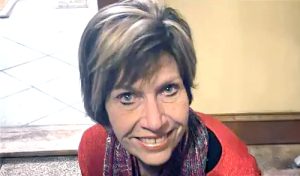With the deadline for the state budget approaching, one of the most contentious issues remaining is whether the state’s minimum wage should be increased to $15 an hour. This issue does not have to be included in this year’s budget, but rather could be accomplished in a standalone bill. However, the governor and Assembly majority, […]
Get Instant Access to This Article
Become a Central New York Business Journal subscriber and get immediate access to all of our subscriber-only content and much more.
- Critical Central New York business news and analysis updated daily.
- Immediate access to all subscriber-only content on our website.
- Get a year's worth of the Print Edition of The Central New York Business Journal.
- Special Feature Publications such as the Book of Lists and Revitalize Greater Binghamton, Mohawk Valley, and Syracuse Magazines
[bypass-paywall-buynow-link link_text="Click here to purchase a paywall bypass link for this article"].
With the deadline for the state budget approaching, one of the most contentious issues remaining is whether the state’s minimum wage should be increased to $15 an hour. This issue does not have to be included in this year’s budget, but rather could be accomplished in a standalone bill. However, the governor and Assembly majority, which is dominated by Downstate legislators, believe their best chance of instituting the 67 percent increase in the minimum wage is to include it in the budget. This way, legislators who may be opposed to such a substantial increase in the minimum wage would be forced to vote for it or otherwise vote against other priorities such as increasing school aid or middle-class tax cuts, which they support.
Constituents who have reached out to my office on the proposed $15 an hour minimum-wage proposal have been overwhelmingly opposed. My office sent out a survey to business owners within my district, and of the nearly 100 responses we received back, about 90 percent of those opposed the increase. About 64 percent said that the wage hike would either force them to lay off workers or worse, close their doors.
My office has also heard from not-for-profits, particularly in the health-care field, who rely on government funding for revenue. They have indicated that unless we increase funding for them in tandem with the mandated wage increase (mainly through Medicaid reimbursement), they will not be able to provide the services they currently provide to our community. Farmers, who traditionally have very tight profit margins, have also been vocal in their opposition to the $15 an hour minimum wage.
It is difficult to comprehend how businesses won’t be forced to reinvent themselves in the face of such a mandated increase. Likely, the increase will force businesses to limit their hiring, cut employee hours, and automate, where possible.
In my mind, a better way to help those who are at the low-end of the pay scale would be to expand the earned income tax credit (EITC). The EITC is a federal and state tax credit for low- and moderate-income working families and individuals. The EITC is refundable so that if the credit exceeds a low-wage worker’s income-tax liability, both the state and federal government will refund the balance to the taxpayer. In order to receive the EITC, the taxpayer must have earnings from employment. New York’s EITC supplements the federal EITC and is equal to 30 percent of the federal EITC.
In contrast to a minimum-wage increase, an increase in the EITC on the state level directly targets low- and moderate-waged workers. Further, it encourages people to work, because in order to receive the EITC you must have a job. To help low-wage income earners lift themselves out of poverty, we should raise the state EITC to 45 percent of the federal EITC. This would provide additional incentive for people to find work and provide them with the earnings necessary to support themselves and their families.
William (Will) A. Barclay is the Republican representative of the 120th New York Assembly District, which encompasses most of Oswego County, including the cities of Oswego and Fulton, as well as the town of Lysander in Onondaga County and town of Ellisburg in Jefferson County. Contact him at barclaw@assembly.state.ny.us, or (315) 598-5185.



